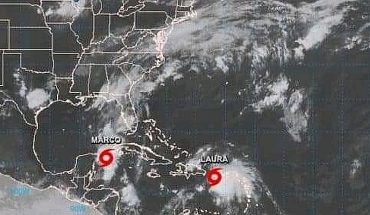For some time now, there has been a transition in the territorial political regime, where the geographical space component has been relieved. In this perspective, the institutional dimension of the territorial transition and the enhancement of space could be identified and characterized from the resolutions that the political system has been formalizing ‘slowly’, since democracy was recovered, regularly dealing with an atavistic centralism that characterized the country from the political, social and economic … and what to say about the cultural, a situation that is unavoidably in the unconscious of the inhabitants of the country v / s the increasingly explicit desires and wills of greater decentralization.
Among the milestones of the process are the direct voting of mayors and councilors, the separation of the vote of mayors and councilors, the creation of regional governments with presidential appointment of mayors and indirect election of regional councilors from the configuration of electoral colleges formed by the councilor / s of the communes grouped by province, subsequently, direct and popular election of regional councilors and, after a few years, in similar terms, the direct election of regional governors. These are some of the ‘slow institutional progress’ in the decentralization process, at least in its political dimension. On the administrative dimension there is very little to indicate and even less in the fiscal one, those that remained anchored to the instruments evacuated by the civic-military dictatorship (administrative deconcentration and financing instruments led by the Ministry of the Interior and the budget directorate).
Part of these ‘slow institutional advances’, found greater degrees of acceleration when the reformist measures of the government of the New Majority, a political coalition led by Michelle Bachelet, were implemented, when, through modification of the law of parties, electoral system and political, fiscal and state administration decentralization, they were arranged, as a new gear of the political system. All this, in some way, buckled by the constitutional process that the government itself deployed, where the decentralizing dimension was imposed not only from the political, but as an inescapable value to address in the future.
From the non-institutional, what we have been characterizing as geography of the multitude, as a conceptual form that seeks to group the social movement in the ‘localized’ territorialities throughout the country, diverse and complex, each, has systematically relieved these claims against centralism and demands for more decentralization, it could be affirmed, since the recovery of democracy. In fact, the gear of reforms proposed by the New Majority coalition, together with the constitutional process of the same government, was a response to the deployment made by the multitudinous geography since 2010 (with more evident and marked emphasis), an issue that led, as it is already known in October 2019, being understood as a stadium or Momentum of intense accumulation/sedimentation of social energy that explains the agreement of November 15 that formalized the current constitutional context.
Therefore, what the Constitutional Convention proposes today is one more phase of a long road, which certainly seems to constitute an important ride for the decentralizing purposes that have been sculpted in time and space from Chilean society. It remains to be seen how the specific aspects of this proposal are achieved, since the Autonomous Regional State form of the Chilean State, which involves redefinitions in other scales of the territory such as communes and autonomous denominations of another nature that were raised and approved in the Plenary of the Convention, require harmonization with the other results that are concretized, especially in the political system commission, which has to do with the political regime, electoral system, national congress and other definitions.
What has been briefly described so far implies a transition of the political territorial regime of the Chilean State, which is explained, in the background, in the dynamism, heterogeneity, sedimentation of layer after layer of the political process, identity, of socio-environmental, social, economic and cultural conflicts of the geographical space, given the different scales that constitute it and arranged, in addition, inter-scalarily paFor their best understanding, those that run through the localized person/society passing through the neighborhood, the commune and reaching larger units such as the groupings of communes or regions. That is, the geographical space in full, exercising its spatial relations of power, a fact recognized and assumed by those who had / have interests of various kinds (national elites connected with the international scale from capital flows).
The progress in decentralization, apart from having to harmonize with the results that the other commissions of the Convention evacuated (that of the political system in particular), obliges not only to be stealthy in this process of territorial transition, since any transition has new elements that must coexist with the current ones and that respond to decades of territorial/political/economic habitation/discipline that are not simple to dismantle, especially from the consciences (and also the unconsciousness?), from the imaginaries of the majorities stationed in these geographical spaces.
We must also be assertive in properly reading the spatial relations of power, which justly demonstrated their real power in the Convention, since they should be limited to fair balances and counterweights that ensure the well-being of the inhabitants of the country’s territory. As never before, in this transition of chile’s territorial regime, you will find in each of the instruments of territorial planning (from policies, such as the National Territorial Planning Policy (PNOT), to specific plans such as the Regional Territorial Planning Plans (PROT), Communal Regulatory Plans (PRC), among others), the challenge of strengthening the unity of the Chilean state, since the one we have today is more discursive than real. What has been advanced so far in the Constitutional Convention is more an opportunity than a risk, since it opens a way to ensure the greatest possible autonomy, without losing the necessary national coherence.
The content expressed in this opinion column is the sole responsibility of its author, and does not necessarily reflect the editorial line or position of El Mostrador.





